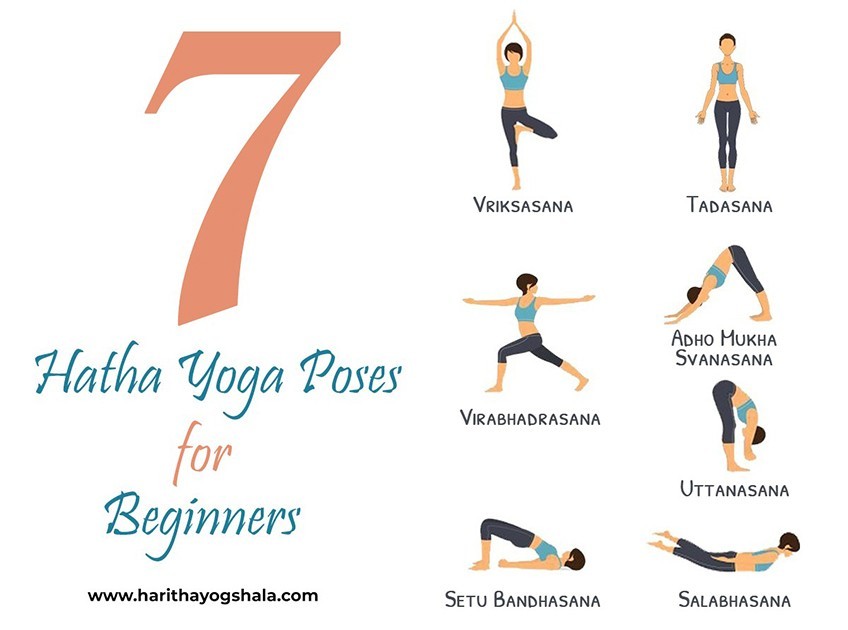
The Standing Forward Bend is a great pose for relieving stress and anxiety. This pose uses gravity to lengthen muscles, and relieve tension. This posture is especially beneficial for the lower back, neck, shoulders and neck. Begin by placing your hands on your hips and bending forward at the hips. Remain relaxed by keeping your arms at your sides and looking upward. This is a powerful way of clearing your mind and overcoming your fears.
An excellent starting position for learning the basics is the Bridge Pose. This pose will both energize and calm your body. The Extended Puppy Pose can be described as a combination of downward dog and child's position. This stretch and lengthen the spine, calms the mind and calms them. Extended Triangle Pose can be particularly beneficial for people with stress, neck pain and indigestion. The Fish Position is an excellent choice for strengthening your chest and mobilizing your upper back. Although it can be a great option for some, this is not recommended to anyone who has suffered a serious injury.

The Child's Pose is another great option for relieving anxiety. The Child's Pose requires that you lie down on your hands and knees on the ground, your arms extended above you. Next, stretch your hips to lengthen your spine and lift your tailbone off the back of the pelvis. Keep your feet flat on a hard surface. For as long as necessary, repeat the process on the opposite side. The Child's Pose also helps you focus on your intention, which may be the answer to your anxiety.
Another option for anxious people is the Backbend. The Bridge Pose requires you to place your hands on your lap and relax your shoulders and chest. Next, close your eyes. Your spine will naturally become more flexible and any stress you are feeling will melt away. This is a perfect pose to help you relax and release tension. You can hold the Bridge Pose indefinitely. It's recommended to practice the Bridge Poses several times daily.
The Head Rest pose can help you relax. This pose is great for feeling grounded. Anxiety sufferers can benefit from the head resting position. This will help you to feel more relaxed, and less stressed. These poses will help you fall asleep faster if you struggle to fall asleep. This pose is for you if you can hold your head straight. Once you're comfortable, you can fall asleep soundly.

Tree Pose is challenging and requires complete concentration. The pose is not suitable if you are suffering from anxiety. Focus on relaxing and deepening your breathing while you do this pose. If you're a beginner, it can take a while to learn the proper technique, but it's well worth it in the long run. With practice, you'll notice how the posture can help you cope with your anxiety and reduce your stress.
FAQ
Why is mental well-being important?
Mental health is vital for everyone. Mental health is essential for everyone. Maintaining a healthy mind is crucial.
If we are not feeling well mentally, our bodies will start to show signs of stress. This could lead to physical problems such as headaches, stomach aches, backaches, and more. Our bodies and minds must be well looked after.
What can I do for my mental well-being?
Everyone needs mental health, especially when we feel stressed at work, school, home, or family. Exercise regularly, eat healthy meals, get enough sleep, and spend time with loved one are all ways to improve mental health. Exercise makes us feel happier and releases endorphins. Eating healthy foods also helps our bodies function properly. Sleeping well gives us energy throughout the day. And finally, spending quality time with loved ones improves our relationships and reduces stress.
Why is it so important to improve our emotional health?
Well-being and happiness are tied to emotional well-being. Without emotional health, you will not be able work at your best. People with depression are often unable to work efficiently. These people may also suffer from anxiety, panic attacks as well as insomnia. These conditions can be successfully treated with medication or therapy.
How can you improve your mental or emotional health?
-
Exercise - Physical activity improves brain function and increases energy levels.
-
Sleep - Getting enough sleep helps reduce stress and anxiety.
-
Nutrition – Healthy foods like fruits and vegetables can help you stay strong and energized.
-
Meditation - Meditation regularly can help reduce stress and anxiety.
-
Socialization: Spending time together with family and friends, keeps us happy.
If I feel depressed, is there anything wrong?
Teens are often affected by depression. However, it's important to realize that many teenagers struggle with depression.
This doesn't necessarily mean you're weak or insane. Many people are unaware that they are suffering from depression. Depression can be a medical condition.
There are several kinds of depression. Some people only experience sadness while others experience other emotions too. There are also different levels of severity.
Some people experience mild depression, while others have severe cases. It's important that you understand that depression doesn't always have to be bad. Sometimes, depression can be helpful in coping with stressful situations.
If you feel constantly tired or sad, consult a doctor. Your doctor can diagnose you and determine whether you need treatment.
Statistics
- Appropriate nutrition and exercise are likely among the most efficacious and cost-effective positive mental health interventions. (ncbi.nlm.nih.gov)
- More than 50% will be diagnosed with a mental illness or disorder at some point in their lifetime.3 (cdc.gov)
- More than 40 million adults in the United States have an anxiety disorder, but less than 37% of people seek mental health treatment for their symptoms. (talkspace.com)
- Similarly, while there is some agreement about the boundaries of typical mental disorders 2, there is likely less agreement about those for positive mental health. (ncbi.nlm.nih.gov)
- In any given year, an estimated 18.1% (43.6 million) of U.S. adults ages 18 years or older suffered from any mental illness, and 4.2% (9.8 million) (healthypeople.gov)
External Links
How To
How to find out if you should seek the help of a mental health specialist
There are some indicators that will alert you to the possibility of professional assistance. If you notice any warning signs, it's best to consult a doctor.
-
You feel like you're losing control of yourself.
-
You have been experiencing trouble sleeping.
-
Concentration can make your mind race.
-
You start to think about suicide.
-
You feel hopeless.
-
You feel like life isn't worth living.
-
You have lost interest and are no longer interested in the things you loved.
-
You have stopped eating.
-
You have been withdrawn.
-
You've tried using alcohol or drugs to deal with stress.
-
You are starting to lose family or friends.
-
You may have also experienced headaches, stomachaches or backaches, and chest pains.
These are all signs that you should look out for.